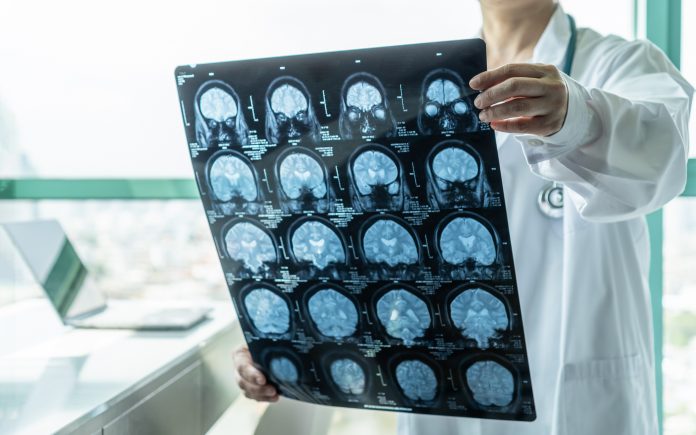Chairman for the global initiative EU Joint Programme – Neurodegenerative Disease Research (JPND) Professor Philippe Amouyel brings to light their innovative work in neurodegenerative disease research
JPND is the first and largest global collaborative research initiative established to tackle the growing challenge posed by the increasing prevalence of neurodegenerative diseases (ND) worldwide.
ND are debilitating and largely untreatable conditions that are linked to age and the regular increase of life expectancy globally. Amongst these, dementias account for the greatest burden: 50 million people worldwide are living with Alzheimer’s disease and related disorders. By 2050 in Europe alone, the number of cases will triple and the global total direct and informal care costs for Alzheimer’s and Parkinson’s disease are estimated to surpass €2,000 billion per year. Solutions are likely beyond the scope and resources of any single country. This common challenge can only be confronted by the maximising of a collective potential at both a European and global level. This joint programming initiative leverages on three pillars: a shared vision, a light and robust management and a common Research and Innovation Strategy (RIS) agenda.
Increase coordination and investment
Initiated in 2009 under the auspices of the European Commission, JPND aims to increase coordinated and defragmented investment between participating countries in research aimed at finding causes, developing cures and identifying appropriate ways to care for those with ND. Its goal is to accelerate the discovery of cures and to enable early diagnosis for early personalised treatments. It also seeks to implement solutions that can alleviate the plight of families and the economic burden brought about by ND.
“The challenge is to tackle neurodegeneration, and in particular, Alzheimer’s disease through an unprecedented collaboration at the European level and beyond. The ultimate goal is to facilitate the cooperation of researchers, to reduce fragmentation, to prevent unnecessary doubling of efforts and to pool and organise resources on a voluntary basis for the benefit of the populations.” – Professor Philippe Amouyel, JPND Chair, University of Lille (France).
In 2019, JPND renewed its Research and Innovation Strategy (RIS) agenda, building on the framework that was established in the original Research Strategy of 2012. The renewed RIS updates the common vision of the 30 JPND member countries, providing a strategic approach to support world-class research and innovation to promote and accelerate the exploitation of scientific opportunities, confront barriers to progress and define novel approaches to prevention, intervention, treatment and care.
Shaped by major advances, the RIS showcases research areas that have been transformed by data science since the 2012 edition.(1) It also identifies five thematic priorities for future research.
“One of the major visible successes of JPND was that it brought together literally hundreds of scientists in Europe who very likely would not have collaborated without the JPND calls, or at least to a much lesser degree. JPND transnational calls have been extremely popular. The calls sparked collaborations and innovative research approaches even for consortia that did not get directly funded, simply by bringing researchers together.” –
Professor Thomas Gasser, JPND Scientific Advisory Board Chair, University of Tübingen, Germany.
JPND and the future of brain health
Originally a European member-state led initiative, JPND is today a global initiative with 30 participating countries.(2) In its continuing efforts of global outreach and in addition to more actively engaging non-EU countries around Europe, JPND also extends its outreach initiatives to Asia.
Increasing life expectancy without disability is closely dependent upon our brain health and one of the key challenges embraced by JPND in its fight against ND. Brain disorders, encompassing neurological and mental health disorders, represent the largest cause of DALYs in 2015 (10.2% of global DALYs) and the second-largest cause of global deaths (16.8% of global deaths). For the last ten years, both European Commission- (EC) and Member States- (MS) led initiatives have been established in Europe, to collectively face these challenges: JPND on ND research; NEURON, an EC ERANET partnership supporting basic, clinical and translational research in the fields of brain health other than ND; the Human Brain Project, an EC’s Future and Emerging Technologies Flagship funded by the seventh framework programme that aims to put in place a unique Information and Communications Technology-based infrastructure for brain research. In 2019, all three initiatives, together with the European Brain Council, started discussions in the context of a European Brain Research Area EC Coordination and Support Action, to find operational synergies, identify a gap and foster alignment across European and global brain initiatives.
The time has come to improve alignment and synergies across these initiatives, to minimise time-to-market of preventions and treatments by intensifying scientific collaborations, identifying gaps in knowledge, improving data sharing and facilitating access to infrastructures on the model of JPND. The extent of the challenge and the complexity of the brain health issue requires a highly visible support system and a defined and organised scientific and innovation strategy. A sustainable holistic view of the RIS like the one supported by JPND, is also necessary in brain health.
There is a pressing need to capitalise on the experience and trust that have been built among European and non-European countries through these existing initiatives. The time has come to form a more ambitious one by mobilising all stakeholder resources under a common transnational banner that will catalyse this unique momentum and accelerate the creation of the largest competitive European and global collaboration essential to improving brain health. Only by maximising our collective potential can this global challenge be confronted.
References
1 Research areas transformed by data science: i) Use of artificial intelligence (AI) technologies for medical care and research; ii) explosion of capability in digital health; iii) growth in public-private partnerships.
2 These include twenty-three EU Member States (Austria, Belgium, Bulgaria, Croatia, Czech Republic, Denmark, Finland, France, Germany, Greece, Hungary, Ireland, Italy, Luxembourg, Netherlands, Poland, Portugal, Romania, Slovak Republic, Slovenia, Spain, Sweden, United Kingdom) four Associated Countries (Albania, Israel, Norway and Turkey) and three Partner Countries (Australia, Canada and Switzerland). In 2018, a collaboration with the National Institute of Ageing (NIH) in the US was realised which will be renewed in 2020.
Please note: This is a commercial profile











